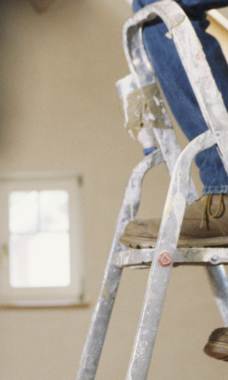Health Information in العربية (Arabic)
Lead is a highly toxic metal that has been commonly used in many household, industrial and automobile products. Lead poisoning is a serious but preventable health problem.
Children interact with our environment much differently than adults do and continue to grow and develop, which is why children’s environmental health is so important.
Thinking about renovating your home? If you are a do-it-yourselfer or hiring a professional, there are some health precautions you should know about before you begin a renovation project.
Vermont law requires all schools and licensed or registered child care facilities to test their drinking water for lead and remediate if levels are at or above 4 parts per billion (ppb).
The Vermont Lead Poisoning Prevention Law requires owners of rental housing and child care facilities built before 1978 to help prevent lead poisoning.
Find out how to become certified to perform Inspection, Repair and Cleaning (IRC) Practices under the Vermont Lead Poisoning Prevention Law.
Lead poisoning can be prevented when you know what danger signs and hazards to look for in your home and in other places.
What You Need to Know About Lead in Drinking Water Lead is a highly toxic metal. Lead can be found in both public water systems (town and city) and private water systems (wells and springs), in household plumbing, and in...

